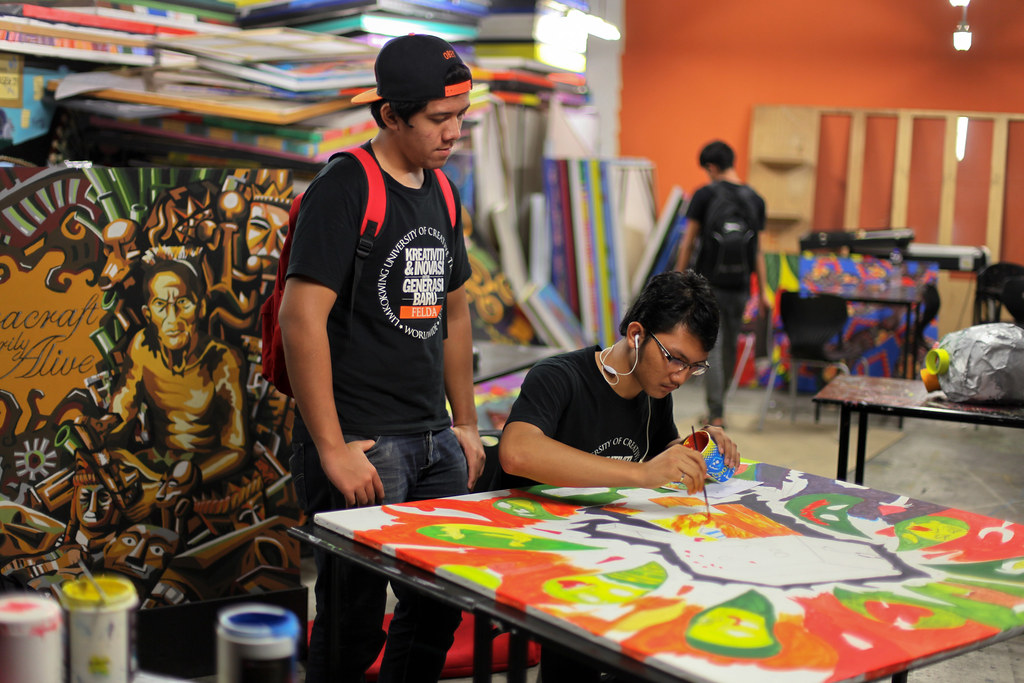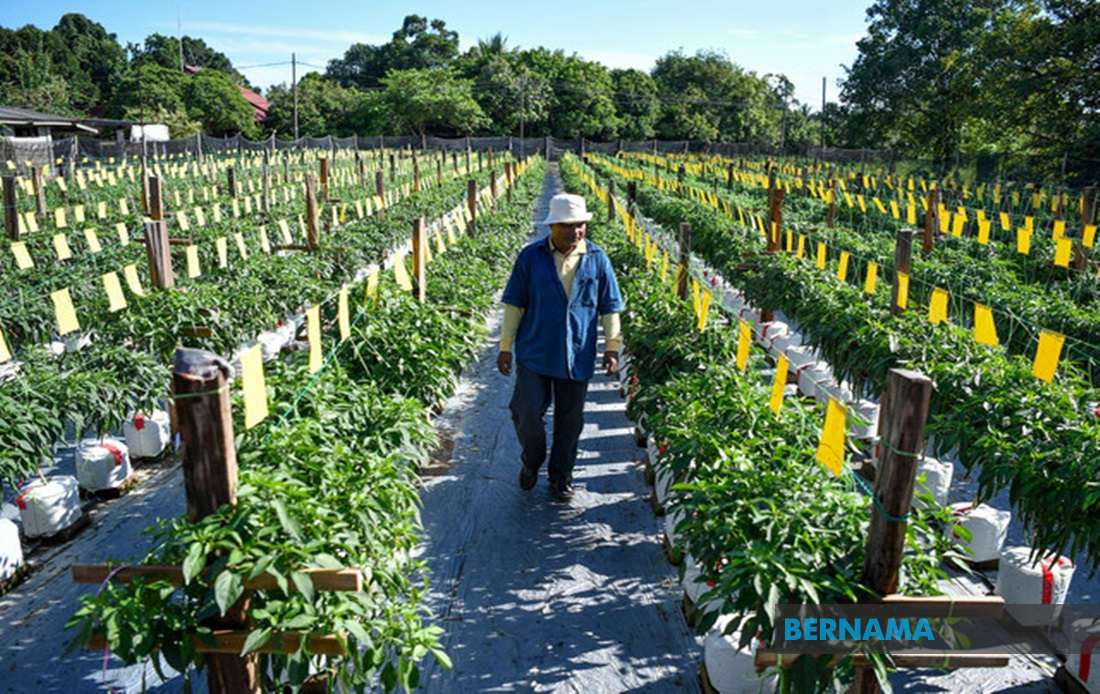The economy is a system that intimately links supply and demand in a chain of interconnectivity. Restrictions on movement and supply will inevitably cause loss of employment and income. The more important is the management of the economy impacted by the Covid-19 (C-19) pandemic and Movement Control Order (MCO). We have seen how the economy has changed from an open economy to a closed economy and how the new policies and regulations have prioritised the local needs of citizens. In some situations, people have been forced to change due to circumstances in order to continue with their lives. Malaysian General Election 2022 (GE-15) is the right time for the nation to make decision in order to change for improvement.
Health management in the daily life of citizens is important to be prioritized because it can give a huge impact on the socio-economic conditions and welfare of the people. According to a research, one out of five people infected by Covid 19, has been experiencing symptoms such as persistent coughs, breathing difficulties, fatigues, insomnia, loss of concentration, depression, etc. Even though people may have succeeded in terms of mainstreaming economic development, if their internal factors including health and health research institutions are still loose, the economic achievement that they have attained can easily be threatened.


Agriculture sector is important in national development planning. We have seen how the supply chain comprising of farmers-wholesalers-retailers-consumers could be fragmented due to the interruption of physical interactions, how demand and supply affected prices, how the government played a role in stabilising prices and how other business opportunities could be created in virtual space. We have also learned that dependence on imported foods was detrimental because many food producing countries prioritised their own needs by fulfilling the demand of food in their own countries. The decrease of export from the relevant countries then affected the price of the respective food products in our country.
Decreasing dependency on imported foods involve decreasing the importation of livestock, fertilisers, pesticides, and medicines used for agricultural activities. The decrease in imported foods will not only be able to stabilise food prices because the prices will no longer be influenced by the Ringgit Malaysia (RM) exchange rate, but it will also be able to improve local food production capacity. Rural areas should continue playing its role as the country’s suppliers of food products and having more territories gazetted as special areas for the specific purpose of national food production. At the same time, special incentives should be provided by the government to encourage urban agriculture or vertical farming especially in larger cities in Malaysia as part of the effort in safeguarding national food security. This is because around 77% of Malaysians are now living in the cities.
Despite restricted movements during MCO, information still moved freely. Sectors relating to information technology, including online government services, online education, online shopping and delivery and many other online activities have expanded during the MCO. Social networks, digital economy, k-economy, mobile platform and applications, advance analytic and big data, cloud and artificial intelligence, Internet of things, e-commerce, Gig economy, many of which may have been unfamiliar to us before but have now transformed us to be one of the regular users.


The coverage of digital economy needs to be optimised. Social networks, mobile platforms and applications, e-commerce etc. have long term strategies that are comprehensive and interconnected, encompassing all economic and non-economic sectors, all government agencies, local authorities, in urban and rural areas, in the air and in the seas. The economy should be actively transitioned into a digital economy through the implementation of four digital ecosystems: infrastructure, infrastructure, data capture and innovation.
The establishment of high-speed Internet in schools and educational and training institutions, smart village, expansion of e-commerce, adoption of automated systems, drone etc. should be expedited. Transition into a digital economy also means that the economy needs to change from being labour based to one that is technologically intensive with higher value-added. The government should be really serious in implementing policies and regulations in governing foreign workers. Recruitment of foreign workers should be decreased and restricted only to specific activities in order to provide opportunities to local labours who were unemployed due to C-19 pandemic and MCO. C-19 caused many people to work from home during MCO. Even though not all work can be done at home, working from home had allowed many household tasks to be completed. Working from home had also reduced dependence on childcare services and maid as well as fulfilled the need to be at home for other specific reasons.
Working from home is also predicted to increase women’s participation in employment. Despite many benefits, working from home still requires further research, planning and clear guidelines, especially in terms of output quantity and quality, cost savings and increment to both employers and employees’ productivity, annual performance evaluation, allowances and relevant incentives. Work from home had an indirect effect to our environment which became cleaner because there was less air pollution and solid waste disposal had also decreased which can lead us to the conclusion that we were too busy mainstreaming the economy and fulfilling wants and not needs. When economic activities slowed down due to MCO, the environment became cleaner and there was less wasted food because people tend to cook tasty foods etc.
Maybe we need to revisit what was said nearly 50 years ago in The Limits of Growth (1972) that development has its limits. Another thing to note is DIY (do-it-yourself) or learning how to do yourself for your own use which was something that was elusive in the past due to limited time, the fact that the thing or service in question was readily available and there were many foreign workers providing their services. The MCO had made people more creative and innovative in their daily lives because many shops were closed during MCO. In fact, this DIY attitude can produce a society with entrepreneurial thinking and culture that starts with small businesses to increase family income while at the same time contribute to the local community. Malaysian needs a government who is stable, efficient and quick to make decisions.


Certainly, after the GE-15, people would like to see how these commitments will be implemented, with national development concentrated on local residents: students, investors, business people, workers and consumers and Malaysian citizens who are now struggling in the difficult time brought by the C-19 pandemic, the MOC and economic recession. Now it is time for us, together as a people and a nation, to change for the better.

About the author:
Dr Asan Ali Golam Hassan is a Professor at UTM Azman Hashim International Business School. His research interests are on economic planning, growth and development. He obtained his PhD (Development Planning) (2003) from University of Liverpool. Master of Economics from University of Malaya (1995), Bachelor of Planning and Development Economics (Hons) (1992) and Bachelor Economics (1991), from Universiti Kebangsaan Malaysia. More about Prof. Asan Ali, https://business.utm.my/asanali_intro


